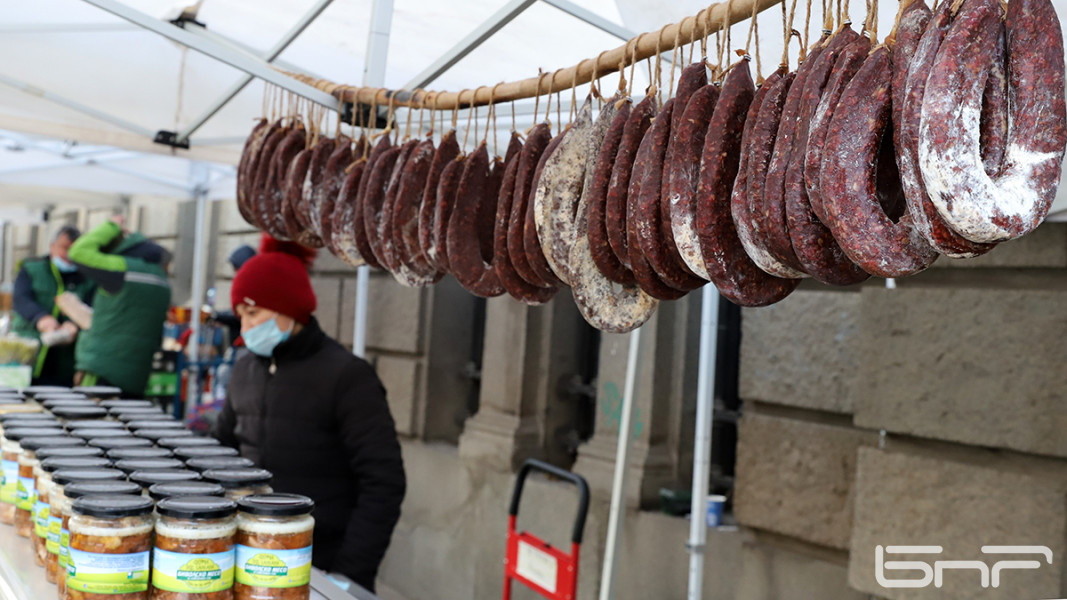People who seek organic, fresh food often shop at farmers markets where producers sell their own produce - fruit and vegetables, honey, dairy products, jams, canned food, wine. And though they have existed for some years it is only now that any regulation of their activities is being considered.
Two draft documents – a set of rules governing the usage of farmers markets and guidelines for the safety of the food on sale at guest houses – aim to make trading in homemade and farmers food aboveboard. The documents introduce, for the first time, official definitions for farmers market, local food, farmers food and craft food.

The set of rules for the usage of farmers markets organizes their activities by introducing rules regarding the food sold, the hygiene on location, the equipment used, as well as the people engaged in the sales.
“We have been organizing farmers markets for eight years and what has been a problem all these years is that there are no food safety measures, no unified standards,” says Gergana Kabaivanova from the LocalFood foundation, one of the authors of the draft documents. “So far we have, unfortunately been literally penalized by the Food Safety Agency with unjustified proscriptions with regard to food control. That is why we want to be distinguished from other, incidental events where people put up grubby tables and sell pseudo-homemade food without any control whatsoever. The purpose of this set of rules is to differentiate the farmers markets with their professional approach and strict control of food safety, from the unauthorized markets.”

The document of rules proposes a measure regarding the organization of charity and educational events, and demonstrations, where home-cooked food can be sold, demarcating home-cooked from professionally made food.
“The set of guidelines is a simplified procedure for registering home kitchens at guest houses,” Gergana Kabaivanova explains, referring to the second documents. “The rules will enable guest house keepers to offer home-cooked food to their guests but also to any client at their restaurant. They will also be able to make sales to end customers using online shops, and at local farmers markets.”
An inspection of 20 guest houses showed that the people who run them are not aware what could be improved if they register kitchens which could offer food to all kinds of clients. That is why approval of the set of rules is just the first step.
“Once we have the approved legal basis we shall start to register the first pilot guest house kitchens so as to demonstrate how rural tourism can develop by offering home-cooked food, and that this will be helpful to the entire village,” Gergana Kabaivanova says further.
The two draft documents were submitted to the National Food Council in November last year. An expert council is yet to analyze and, possibly, approve them.
Interview by Aishe Lyatif, BNR-Shumen
Editing by Diana Tsankova
Photos: BNR
President Rumen Radev will today attend the opening ceremony of Forest Week in front of St Alexander Nevsky Cathedral. The theme of this year's celebrations is "A century of eternal creation, preservation and care!" This year marks the 100th..
For 100 years, foresters in Bulgaria have been organizing Forest Week. A concert entitled “A century of eternity” on 7 April will give the official start to the initiative dedicated to the planet’s lungs. And though it has been a century since..
The eagerly-awaited Tulip Parade at the University Botanical Garden in Balchik is at its peak. This year’s parade includes more than 45,000 bulbs, and 27 varieties that are new to the Garden, among them Tulipa "Carnaval de Nice, which combines..
April 8 is the day when Roma people around the world celebrate their identity. " International Roma Day is a time to show that we are part of the..
Every Bulgarian school abroad has its own story, and that of the Rodna Stryaha Bulgarian school in Cyprus began in 2015. Its foundations are built on..
President Rumen Radev will today attend the opening ceremony of Forest Week in front of St Alexander Nevsky Cathedral. The theme of this year's..

+359 2 9336 661
